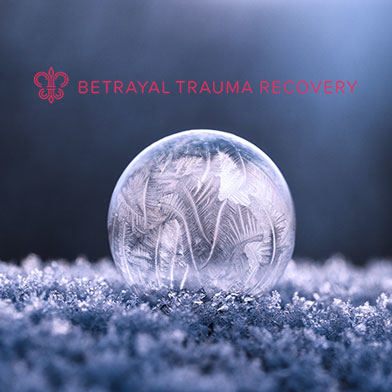I think, at the beginning of recovery, the idea that this is going to be a lifelong process is really scary. What would you say to women who are at that beginning stage where they think, “Wait a minute, I didn’t sign up for this. I don’t want to find out where I am in my healing process, because I don’t want a healing process in the first place. And I don’t want a healing journey, I want to be healed.”
Anne Blythe, Founder of BTR.ORG
Anne is on The BTR.ORG Podcast sharing an update on her recovery journey, including the acceptance that healing is not linear, but a lifelong process. Tune in to the podcast or read the full transcript below for more.
BTR.ORG Supports You in Your Recovery
At BTR, we understand how painful it is for women to come to terms with abuse and betrayal. It may seem impossible to do simple things like brushing your teeth or falling asleep at night. Because of the devastation that accompanies abuse and betrayal, women need support.
Consider attending a BTR.ORG Group Session today.
Full Transcript:
Anne (00:01):
Welcome to BTR.ORG. This is Anne.
There were so many times along the journey, and still now since I’m still in recovery, I’m still finding out things and you are hearing about my recovery in real time that I didn’t know what I didn’t know. There was a long period of time where I thought I was in recovery and I actually wasn’t. I didn’t know what boundaries were. I didn’t know the healing stages. There were so many things that I didn’t understand.
The really important thing is to know what the stages are and how you fit into those stages, that it’s not linear, but in order to have a very effective recovery, I think it’s important to have a structure, it not being linear. You could be in stage one for a while, then move to stage two, then feel like you’re in stage three, and then be like, wait a minute, I’m not at stage three.
A Lifelong Process
I thought I was, but really, I need to go back to stage one. I need to establish safety, for example, and that’s what we’re talking about when we say it’s not linear. You can move back and forth between those stages, and I don’t want that to scare women because I remember when I started recovery, I thought, okay, when I’m done, I was driving down to a support group and I thought, well, once my crisis is over, I’ll stop.
But hey, I’m two and a half years out. I still love my support group. At the beginning of recovery, the idea that this is going to be a lifelong process is really scary to women who are sort of at that beginning stage where they think, wait a minute, I didn’t sign up for this.
“I don’t want a healing process in the first place”
I don’t want to find out where I am in my healing process because I don’t want a healing process in the first place. And I don’t want a healing journey. I want to be healed. I felt a shift from trying to manage the sadness and manage the grief, and manage the triggers to now where I’m working with a coach to build. Right, and for me, it took about two years slogging through the grief and the pain, and now I feel like I’m on the other side of that, but I still have so much work to do. I can see my goals and I am now excitedly working toward them.







